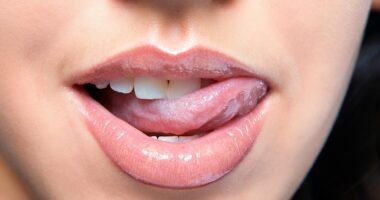Deciding whether or not to masturbate is a personal choice. However, masturbation can have many positive effects, including hormones and chemicals that promote positive emotions, feelings, and sensations.
Meanwhile, most of the negative effects associated with masturbation focus on how a person feels about the act itself, rather than the physical effects on the body.
Read on to learn how masturbation affects the brain, what masturbation addiction is, how to treat and prevent it, and when to see a doctor.

Positive Effects of Masturbation on the Brain
There are numerous potential health benefits of masturbation.
Hormone and Chemical Secretions
Research shows that masturbation, as well as other sexual activities that lead to sexual pleasure or orgasm, stimulate the release of hormones and chemicals involved in the brain’s pleasure-reward center. These include:
Dopamine: Known as the “happiness” hormone, dopamine is an important neurotransmitter involved in motivation, motivation, and reward seeking.
Oxytocin: The “love” hormone oxytocin has a wide range of behavioral and physiological effects, such as promoting sexual, social and maternal behaviors associated with pleasure. The hormone also supports well-being, positive social interaction, growth and healing.
Serotonin: Serotonin is a neurotransmitter that helps mediate happiness, optimism and contentment. There is also a link between high serotonin levels and mood enhancement.
Endorphins: Endorphins are known as “feel-good” chemicals that reduce pain better than morphine. They are responsible for the pleasant rush or high associated with exercise.
Prolactin: Prolactin is a hormone that promotes physiological responses to reproduction, stress management and emotional regulation.
Endocannabinoids: These neurotransmitters are important for rewarding behaviors such as exercise, social interaction, and eating. They also help regulate processes such as pain, inflammation, metabolism, cardiovascular function, learning and memory, anxiety, depression and addiction.
Norepinephrine/noradrenalin: This is a stimulatory neurotransmitter that increases and regulates dopamine transmission, a substance associated with levels of happiness.
Adrenaline: Adrenaline reduces stress by helping to regulate aspects of heart rate, blood vessel and airway diameter, and metabolism.
Reduction of Stress and Anxiety
The release of oxytocin from sexual activity reduces stress hormones, such as cortisol, while promoting relaxation. Prolactin also helps regulate the stress response.
Improve Sleep
Masturbation releases hormones and neurotransmitters to help reduce stress and blood pressure while promoting relaxation, which can facilitate sleep.
A 2019 study that surveyed 778 adults found that there was a clear perception of favorable sleep outcomes associated with orgasm. Many respondents found that masturbation helped reduce the time it took to fall asleep and improve the quality of sleep.
Pain Reduction
Endorphins are the body’s natural pain relievers. Endocannabinoids are also known to help regulate pain and inflammatory processes. These natural pain relievers can also help ease menstrual cramps.
A 2013 study found that sexual activity can provide partial or complete relief from migraines and some cluster headaches.
Improved Immune Function
Masturbation increases levels of prolactin and endocannabinoids, which help regulate the immune system. It also increases hormones and neurotransmitters that reduce stress.
Better Mood
Masturbation can increase levels of hormones associated with positive mood, such as dopamine, oxytocin and endorphins.
Improve Focus and Concentration
By increasing levels of hormones and neurotransmitters involved in learning, memory and motivation, meditation can improve focus and concentration.
A 2020 study found that drugs used to improve focus and concentration, such as Ritalin, may work by increasing circulating dopamine levels and increasing motivation to complete difficult tasks.
Improve Self-Esteem
Masturbation can increase adrenaline levels. Researchers associate high levels of salivary and urinary adrenaline with personal growth or a sense of purpose in life. Learning how to pleasure yourself can also be empowering and improve body image.
Masturbation Improve Sexual Function
Many of the hormones and neurotransmitters involved in the human sexual response cycle help regulate the cycle itself by promoting the release of stimulatory compounds at high levels.
Improved Cognition
Prolactin has a neuroprotective effect, reducing nerve damage in response to stress. Dopamine also appears to contribute to healthy cognition. A 2016 study found that sexual activity increased recall and number ordering in older men and recall in older women aged 50-89.
Decreased Blood Pressure
Oxytocin and endocannabinoids can also help lower blood pressure.
Negative Effects of Masturbation on the Brain
Although most people experience the positive effects of masturbation, this is not true for everyone.
Some people may be morally or religiously opposed to masturbation and may feel guilty or ashamed for engaging in or even thinking about masturbation.
Excessive masturbation can also lead to physical problems such as skin irritation or broken skin, genital swelling and pain.
Masturbation is also difficult for some people to engage in positively, especially those with a history of sexual vulnerability or abuse. These people find it too embarrassing or even painful to engage in masturbation.
Addiction to Masturbation
Currently, the American Psychological Association does not recognize masturbation or sex addiction as a mental health condition. Rather, most experts classify excessive masturbation as compulsive sexual behavior (CSB) or out-of-control sexual behavior.
The American Association of Sexuality Educators, Counselors and Therapists states that there is insufficient evidence to support the classification of sex or porn addiction as a mental health condition.
Treatment and Prevention
Some people are more prone to CSBs due to certain health conditions, such as:
- It is the name of a mental disease
- Bipolar disorder
- Pick’s disease
- Kleinlewin syndrome
- Obsessive-compulsive disorder
In people with these conditions, treating the underlying medical problem often helps reduce sexual compulsions and behaviors.
Some illegal drugs and prescription drugs, especially those that increase dopamine levels, can also increase one’s sex drive. These include:
- Methamphetamine
- Parkinson’s drugs
- Cocaine
In these cases, stopping or changing medication or drug use can often reduce sexual compulsions such as excessive masturbation.
When excessive masturbation begins to interfere with daily life, psychological well-being, or physical health, seek help from a doctor or therapist.
People should also consider seeking professional help if guilt, shame, or other negative emotions interfere with sexual function, pleasure, or relationships.









1 comment